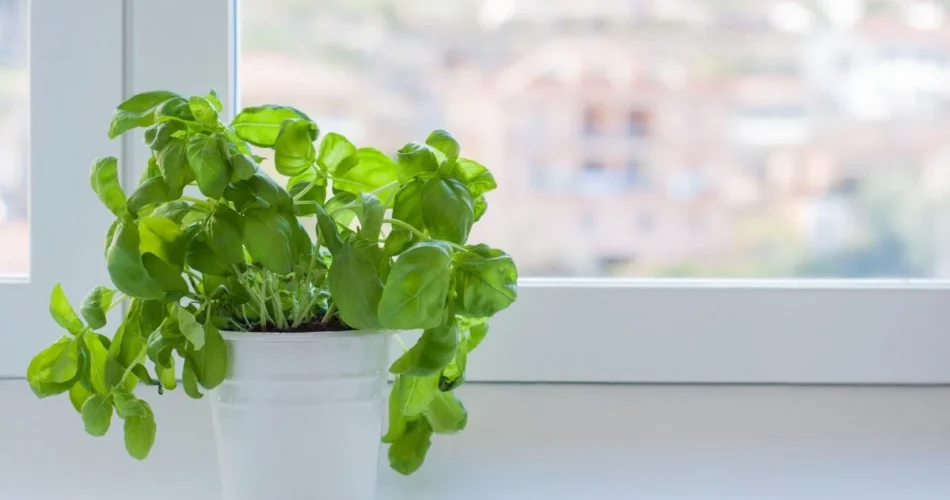Enjoying a basil plant is a blessing, and we mustn’t let our plant wither away!
The name of this common and familiar aromatic herb actually derives from an elaborate Greek term, βασιλεύς. Basileus, meaning KING. Indeed, it reigns over the Mediterranean table like a beloved and honored sovereign. It transforms our dishes into masterpieces with its inviting and intoxicating aroma: pasta dishes become tastier, and it pairs well with any dish, even making its mark in desserts, such as the sought-after lemon gelato.
Keeping it healthy and flourishing might seem like an obligation, almost a moral duty, but it’s not that easy!
Once at home, it seems to suffer, eventually turning yellow or gray. A hardship for both the basil and us, who helplessly witness its decline.
So, we resort to buying it in powder form, but undoubtedly, its flavor is not as intense!
Yet, a few simple rules can prevent the basil curse from befalling it. Follow our advice closely, and you’ll always enjoy fresh and fragrant leaves, perfect for any recipe!
The Basil Blessing: How to Keep Your Basil Plant Alive
The first thing to do when we buy a basil plant is to remove it from the plastic container it’s usually sold in and transfer it to a new terracotta pot. Before potting, place a layer of clay at the bottom; it will help drain excess water that could cause premature root rot.
Don’t overwater: touch the soil and ensure it remains consistently moist.
If it’s too wet, it may rot, and if it’s too dry, it will turn yellow. Fertilize by finely sprinkling powdered eggshells; this way, the plant can absorb all the necessary nutrients and strengthen itself.
Be very mindful of where you place it: if indoors, position it in a bright area but not directly under the sunlight. The same applies to pots left outside, in the garden, or on the balcony, as well as in the vegetable garden. Sun rays could “burn” the leaves. Choose a well-lit yet shaded spot, never excessively windy.
Note: If you notice any flowering, remove them, as they could deplete the plant of nutrients and alter the taste of your aromatic plant.
